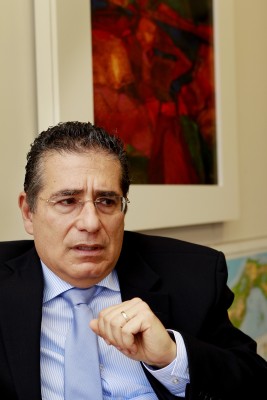The Panama Papers Prove Change is Necessary
April 22, 2016

On April 3, the international community was rocked by a massive leak of 11 million documents—belonging to the Panamanian law firm Mossack Fonseca—which point to tax evasion and money laundering on a global scale. Among those implicated are numerous world power players including celebrities, athletes and politicians like right-wing Argentine President Mauricio Macri and the Prime Minister of Iceland Sigmundur Gunnlaugsson. Gunnlaugsson has since resigned in the face of the largest protests in the history of his country.
The strategy of service providers like Mossack Fonseca is to create a “shell company”—essentially a fake corporation pretending to do business while serving as a massive piggy bank—to secretly hold assets in a country with a far lower tax rate than the place of one’s residence. This means more wealth going to businessmen and less wealth going into the public coffers. Something that may be surprising about these leaks is how few Americans have been implicated in their wake. While this may seem like a good thing, it is not that this variety of tax evasion is not occurring in the United States, but that it is so simple for businesses to circumvent our tax laws that they do not need to jump through as many hoops. It is for this reason that only 211 Americans are mentioned in the multimillion-document leak. If Americans wish to get around tax laws, they can look to closer havens: places like Delaware and Nevada.
Here at home, the Washington Examiner reports that the Clinton Foundation has established no less than five shell companies all at the same address, 1209 North Orange Street, in Wilmington, Delaware. This kind of disregard for the public good can be seen in nearly every major seat of power across the world. Corruption on such a massive scale only further proves the point that governments worldwide are firmly in the grip of the richest few. From the shells used by the Clintons all the way to those used by the associates of Vladimir Putin in Mossack Fonseca, there is a blurring of the line between the interests of those in government and those in the ownership class. How can governments be expected to govern in the interest of the people when those that comprise them not only come from and are supported by said ownership class, but are willing to exploit every loophole they can find to retain their status at the expense of society as a whole? Reform is needed, and the worldwide rise of both left and right populists who offer their own solutions to problems caused by an elite class far removed from the interests of the average person is illustrative of this.
The most dedicated acolytes of the free-market system insist that the issue lies in government itself—that if taxes, labor laws and regulations were done away with on a global scale, we would not need to fear the fraternal relationship between business and the state. Most American liberals would tell you that the system needs to be reformed, that actions must be taken to see that tax law is written in a manner that prevents these kinds of shell companies from forming. However, no matter how many lines are drawn restricting the ability of individuals to hide away their wealth in tax havens, one cannot escape the fundamental root of the inequality and corruption that dominates our world today: the capitalist system itself. Capitalism intrinsically requires that a select few acquire massive concentrations of wealth from a labor force which receives barely enough to provide for itself. With this concentration of wealth, the ownership class also has the means of seizing political power with an almost total domination that Marx referred to as “the dictatorship of the bourgeoisie.” Recent leaks only reflect this collusion. Before serving as President and Mayor of Buenos Aires, Macri made his fortune as Director of Fleg Trading. Before ascending to 10 Downing Street, British Prime Minister David Cameron made a healthy sum off of shares in his father’s investment firm. As long as the few are capable of holding on to this political power, any attempt to implement piecemeal reforms will be temporary at best—and doomed at worst.
In order to transfer this power from the elite to a democratic majority, radical change is necessary. We must imagine an economic system run in the interest of society as a whole, in order to protect the livelihoods and dignity of the individuals therein. The fact of the matter is that the wealthy and their friends in government will never capitulate to the demands of the working class until there is an existential threat to their power and privilege.









